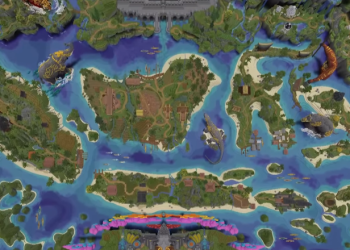Jakarta, Indonesia Sentinel — Indonesian creative technology company Ruang Waktu has introduced Nirmala, the country’s first fully autonomous metahuman AI. The technology claimed to be capable to engage in real-time interactions without any human intervention, marking a significant milestone in Indonesia’s AI development landscape.
A metahuman is a hyper-realistic digital character capable of mimicking human expressions, speech, and movements. Nirmala stands out as a digital persona that can respond to real-world stimuli and maintain dynamic interactions across platforms.
“This is the dawn of a new era, a true industrial revolution,” said Seto Hendrianto, Co-Founder of Ruang Waktu, in a company statement.
The Nirmala project began in 2020 as a digital character experiment on social media. An early prototype named Demi was introduced in 2021–2022, laying the groundwork for the public launch of Nirmala Kinandari in 2025.
Developed using Epic Games’ Unreal Engine, Nirmala boasts a lifelike appearance and seamless animation. It is also equipped with Large Language Model (LLM) integration, enabling fluid, natural dialogue.
This technology makes Nirmala suitable for a wide range of applications, from gaming and filmmaking to customer service and virtual broadcasting.
“Nirmala is designed to serve as a digital representative across industries such as e-commerce, media, and entertainment,” Seto added.
Read Also:
Ruang Waktu’s engineering team has implemented complex systems including AI routing pipelines, latency optimization, and persona memory to ensure consistent communication styles and personality in Nirmala’s interactions.
Public testing of the metahuman began in March 2025 through interactive livestreams on YouTube, followed by TikTok sessions in May. During these sessions, Nirmala successfully read and responded to viewer comments in real-time, without human moderation.
Looking ahead, Ruang Waktu plans to expand Nirmala’s presence across more platforms and deepen her autonomous decision-making capabilities throughout 2025. In 2026, the company aims to open broader public access to the technology and develop intellectual property (IP) around Nirmala.
“The Nirmala project is just the beginning,” Seto said. “Over the next two to three years, we aim to develop fully autonomous and robotic AI technologies that will benefit industries and communities on a much larger scale.”
(Raidi/Agung)
























